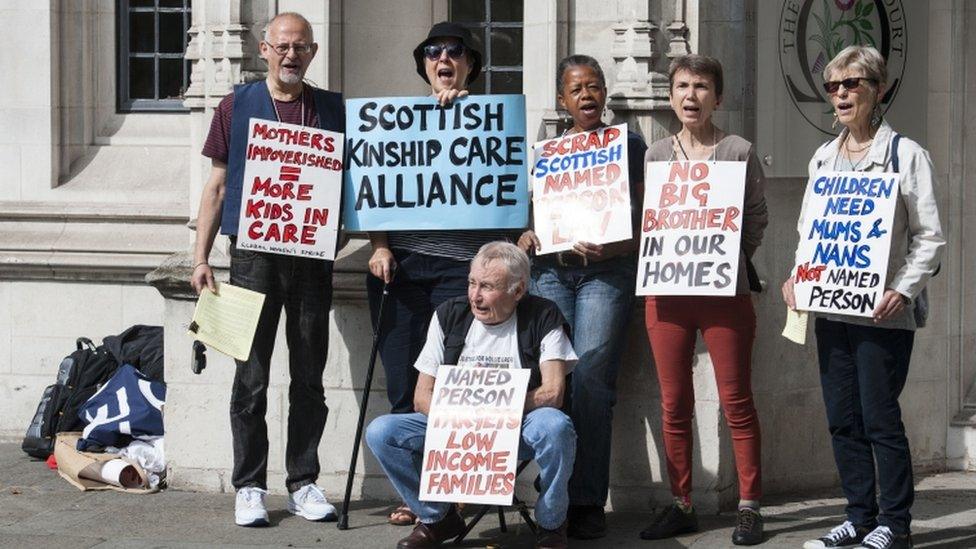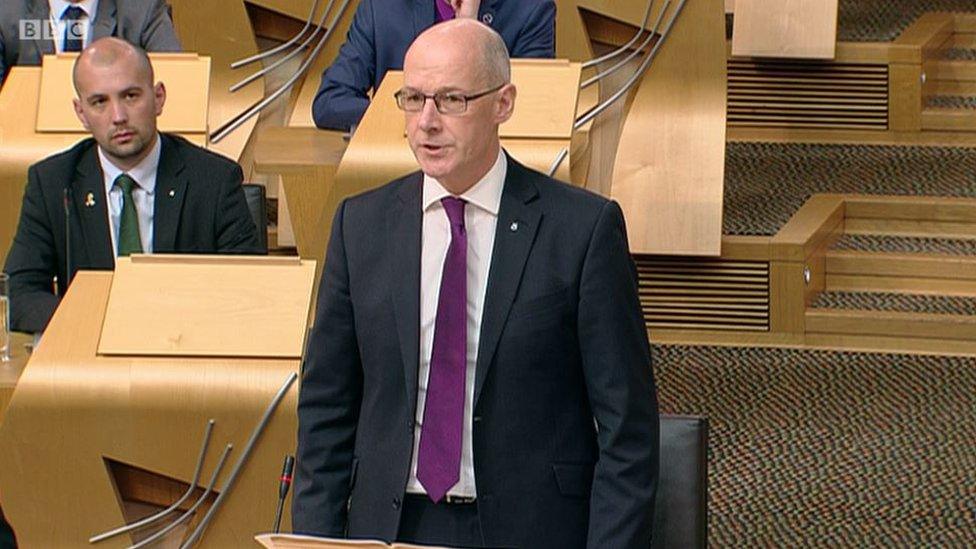Ministers criticised over named person consultation
- Published

Campaigners opposed to the Scottish government's named person scheme claim ministers have refused to engage with them during a consultation on plans to reform the policy.
Education Secretary John Swinney launched the "intense" three month consultation last September.
But the group which mounted a legal challenge against the scheme said there had been no updates from ministers.
The government said it held more than 50 meetings during the consultation.
A spokesman said Mr Swinney would update parliament in "due course".
The named person policy, introduced as part of the Children and Young People Scotland Act of 2014, set out to appoint a single point of contact, such as a teacher or health visitor, to look out for the welfare of all children up to the age of 18.
The consultation was announced six weeks after the UK Supreme Court ruled elements of the policy to be "incompatible" with the right to privacy and family life, as set out in the European Convention on Human Rights (ECHR)
'Sham consultation'
Feedback from it was due to be collated by the government, with Mr Swinney intending to outline his next steps before the end of 2016.
But the No To Named Persons (NO2NP) group, which mounted the legal challenge, said they were not involved in the process.
Freedom of information requests by the group for details of the consultation discussions were rejected.
NO2NP spokesman Simon Calvert said: "The engagement period was really a sham consultation because Mr Swinney only wanted to deal with those who support the scheme and organisations mainly funded by the government.
"He refused to engage with us even though we represent an important cross-section of Scottish society, huge numbers of parents and more than 35,000 people who signed our petition.
"The three-month 'engagement' has long since ended. It looks like it could be more like six or seven months, March or April 2017, before we hear anything."
He added: "The Supreme Court agreed with us that the intrusive sharing of private information which was at the heart of the Named Person scheme was unlawful.
"The court granted our appeal, and ordered the Scottish government to pay all our costs. It was a total defeat for the Scottish government.
"The substantial delay in announcing their plans to try to navigate a way around the ruling indicates that reality is finally beginning to bite."
Come into force
After the legal challenge, Mr Swinney was forced to act to halt the roll-out of the named person scheme, which has already been trialled in some parts of Scotland.
It had been due to be introduced across the country on August 31 2016, but Mr Swinney said he hoped the named person policy can now come into force a year on from that.
A Scottish government spokeswoman said: "The engagement involved more than 50 meetings with some 250 organisations and groups - and included around 700 young people, parents/carers, practitioners and professionals.
"This included leaders from health, education, local authorities, police, faith communities, charities, unions and professional bodies.
"The deputy first minister will update parliament in due course."
- Published13 November 2016

- Published8 September 2016

- Published28 July 2016
